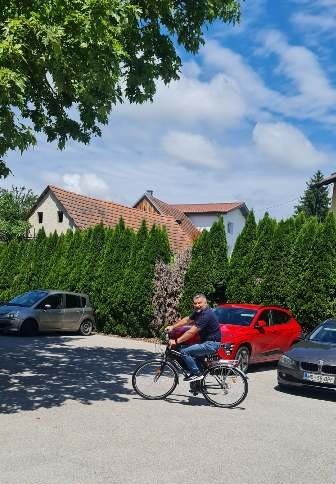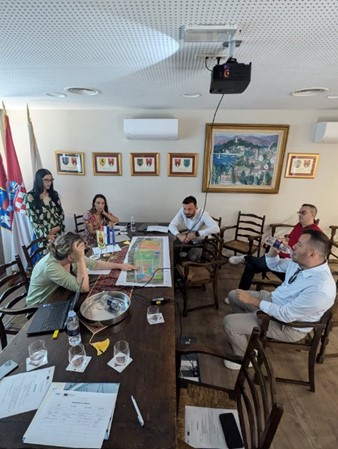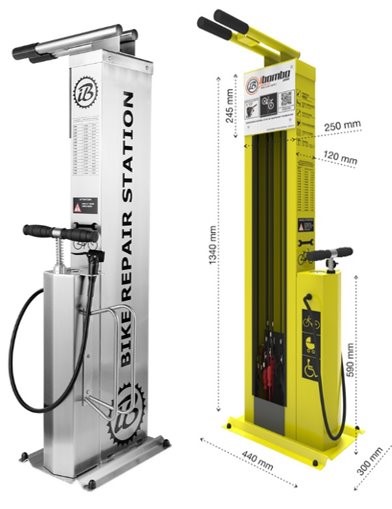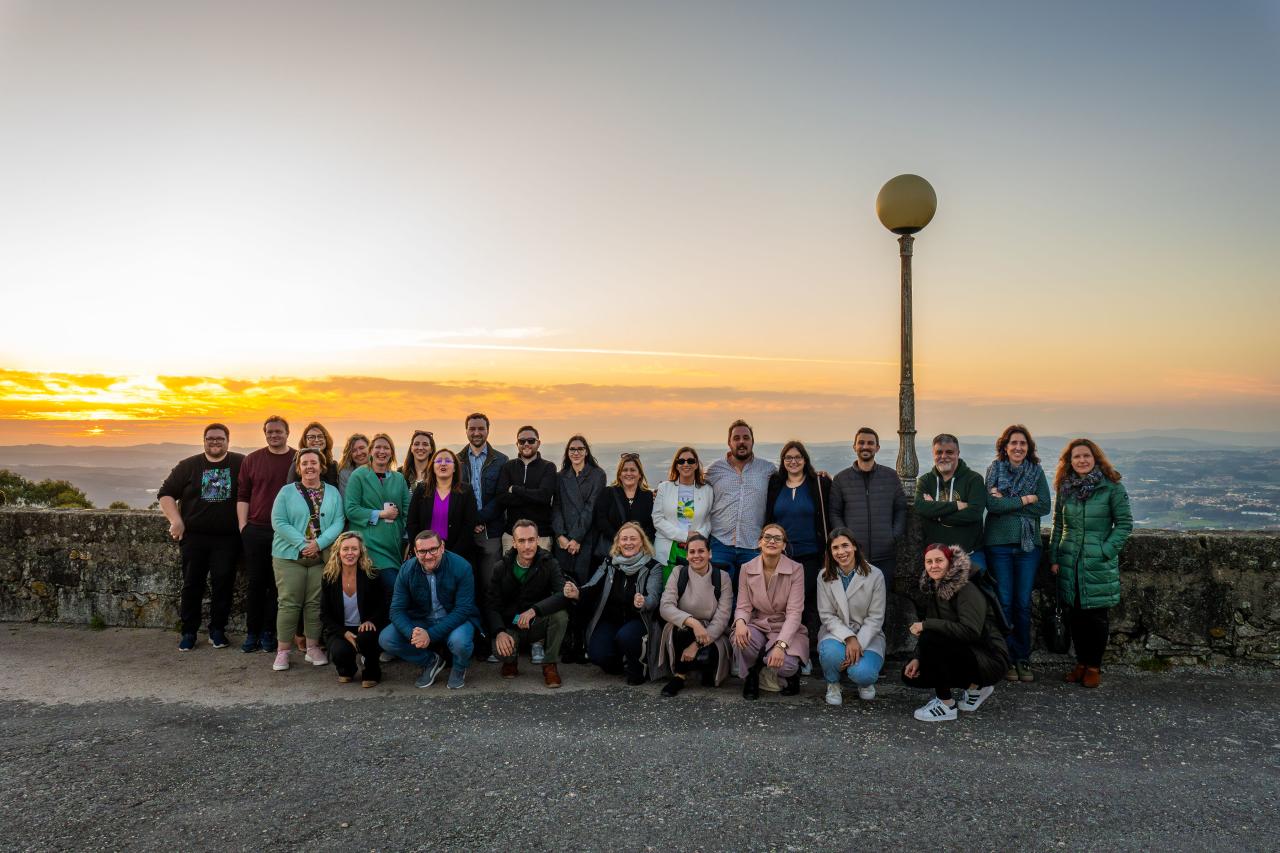Partners have also met regularly during online masterclasses to focus on specific network related themes such as CSRD and what it means for businesses and cities among other topics. They also met online during multiple targeted support sessions, e.g., on test actions, and during ULG coordinator meet-ups, which provide tailor-made support to ULG coordinators to help them with the co-development of their integrated action plans (IAPs).
A major focus during this last year, has been on designing and implementing test actions, small-scale experiments encouraged by the URBACT programme. These allow cities to trial ideas, measure outcomes, and decide whether to adapt, scale up, or discard them. All nine EcoCore partners are actively testing solutions, gaining valuable insights along the way.
Test actions are time- and scale-limited, with the freedom to fail—a necessary approach to foster learning and innovation. Fear of failure often leads to inaction, hindering progress. To meet climate goals, cities must embrace experimentation and collaboration, using the "city as a lab" to accelerate innovation and find solutions.
So what exactly are the EcoCore partners testing?
Ormož, Slovenia: Promoting Green Mobility
Ormož has introduced a 3 month pilot program encouraging sustainable mobility by offering free bicycles for work-related errands within its business zone. This initiative not only aims to reduce the carbon footprint of local enterprises but also fosters a culture of green transportation among employees and entrepreneurs. To date eight businesses participated in the test campaign, cycling a total of 319 km during 88 journeys.

Tuusula, Finland: Digital Tools for Sustainable Urban Development
Tuusula is exploring digital tools to measure the carbon impact of zoning decisions through the Planect software. They want to test if knowing the carbon footprint of a particular development will impact on how the final plans are implemented. This software is being tested in the development of the city’s newest industrial zone.
Balbriggan, Ireland: Strategic Community and Business Growth
Balbriggan is busy with a suite of test actions that focus on aligning community and business goals to ensure sustainable growth. They city wants to identify sustainability challenges that businesses are experiencing and to co-create solutions for implementation. They want to inspire more businesses to implement sustainable measures by sharing the sustainability journeys of other businesses and they want to attract new green business to Balbriggan through proactive relationships with existing businesses and marketing. So far the city has engaged over 30 businesses with overwhelmingly positive feedback and a high demand from businesses for the scaling up of these types of activities and supports.
Dubrovnik, Croatia: Green Zones in Creative Hubs
Dubrovnik is promoting green and circular principles in developing creative and cultural hubs and business zones. Activities centre on capacity-building and collaboration among stakeholders, to integrate green solutions into the planning, development and management of business zones. The city will test whether local stakeholders will be interested in changing the business zones to incorporate green solutions, and how much of it will be implemented in the conceptual design as a result of their capacity building efforts.

Alba Iulia, Romania: Sustainable Commuting
Alba Iulia is piloting a green electric bus route dedicated to the city's economic zones. By facilitating eco-friendly commuting options for employees, the initiative addresses daily transport needs while promoting environmental consciousness.
Villena, Spain: Harnessing the multi-actor approach for Green Growth and Strategic Logistics Development
Villena plans to host an international conference aimed at enhancing local knowledge and capacity for sustainable economic development. Positioned near major transport corridors, this initiative seeks to attract stakeholders invested in green growth and to enable a multi-level and multi-actor approach to the strategic development of a logistics node in the city. The city will test the effectiveness of this event in promoting strategic development.
Pärnu, Estonia: Advancing Regional Collaboration
Similarly, Pärnu’s focus lies in testing the effectiveness of their efforts to foster international collaboration by organizing conferences to deepen stakeholder engagement and strategic sustainable development planning that leverages its position near the Via Baltica and Rail Baltica transport networks.
Santo Tirso, Portugal: Testing Co-Working Spaces to Foster Innovation and Empower Young Professionals in Santo Tirso
Santo Tirso is testing the demand for modern co-working spaces throughout the city. They want to see if the provision of flexible, affordable office solutions for young professionals and entrepreneurs will help to foster a collaborative environment that encourages networking and innovation, as well as helping to attract and retain young people in the city. For the initial test, they will transform one space into a small co-working space to evaluate the concept.
Ķekava, Latvia: Self-Service Bike Stations to Promote Sustainable Transport
Ķekava Municipality will introduce self-service bicycle maintenance and repair stations, promoting cycling as a primary mode of transport. This action aligns with broader goals to reduce car dependency, especially in light of the forthcoming Ķekava bypass. They city will measure the level of usage of the stations , the level of satisfaction (range of service available, location of the stations) and whether or not the availability of these stations increases the use of cycling as a mode of transport.

Challenges and Next Steps
Each city’s test actions have uncovered unique challenges, such as public engagement in green initiatives, adapting existing infrastructure, and ensuring stakeholder collaboration. As EcoCore partners continue refining their projects, the focus will be on refining actions, scaling the successful ones, long-term sustainability, and integration of lessons learned.
Stay tuned as the network progresses towards its final phase, where these test actions will transition from pilot programs to actionable strategies for circular and green economic practices across Europe.
Keywords: #multi-actor approach #multi-level governance #regional collaboration #urban revitalisation #green zones #small-scale testing #stakeholder engagement #economic development #sustainable urban development #integrated urban planning # green transition


